
“Me tho warli aadiwasi
Amchya padhati hait etihaseek
Hya rana cha mool nivasi
Jeev annto padsar matit”
-Warli Revolt by the Hip hop collective Swadesi movement with activist Prakash Bhoir
Sundays are usually quiet in Aarey, but November 17 was different as hundreds of Adivasis gathered at Picnic point – several kilometres inside the forest – to remember their beloved leader Birsa Munda, even as the sun’s rays receded gently through the trees – some of them ‘marked’ with red cloths – probably for more ‘development’ activities. There was heavy police bandobast despite it being a cultural event.
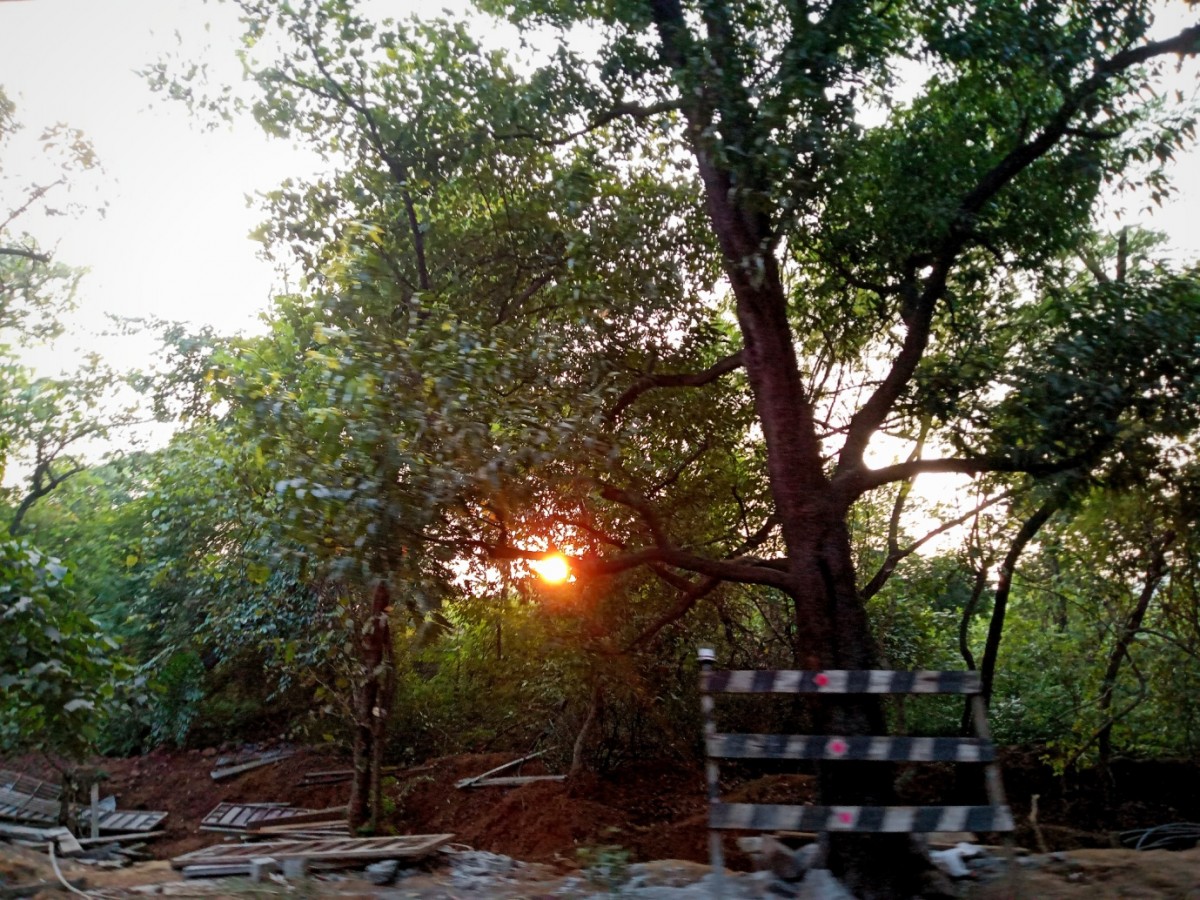
Birsa Munda was born on November 15, 1875, in Jharkhand and is revered as a God among the Adivasi and forest-dwelling communities across India. Munda’s rebellion had shaken the foundations of the British empire, fighting the British army’s advanced weapons with bow and arrows. He died under mysterious circumstances in the Ranchi jail, and has, since then, been remembered as a martyr.

In a similar vein, the movement to protect Aarey has been inherently linked to the struggle of the Warli Adivasis in the area, to preserve their culture and identity. The forest dwellers in Aarey have had to wage several struggles simply to assert their existence on the land.
Also read: Aarey Protesters Allege Police Assaulted, Abused Them
Around 27 Adivasi settlements are spread across Aarey. Most people live in precarious conditions without basic facilities such as electricity and water supply, despite being located close to other posh areas in the city. The civic authorities come down to their settlements without any prior notice. According to the Adivasis in the region, a major area of the green cover had already been lost to an NSG training centre, Film City, and housing complexes. The Adivasis have been living in the area since before the Aarey dairy was set up in 1951.
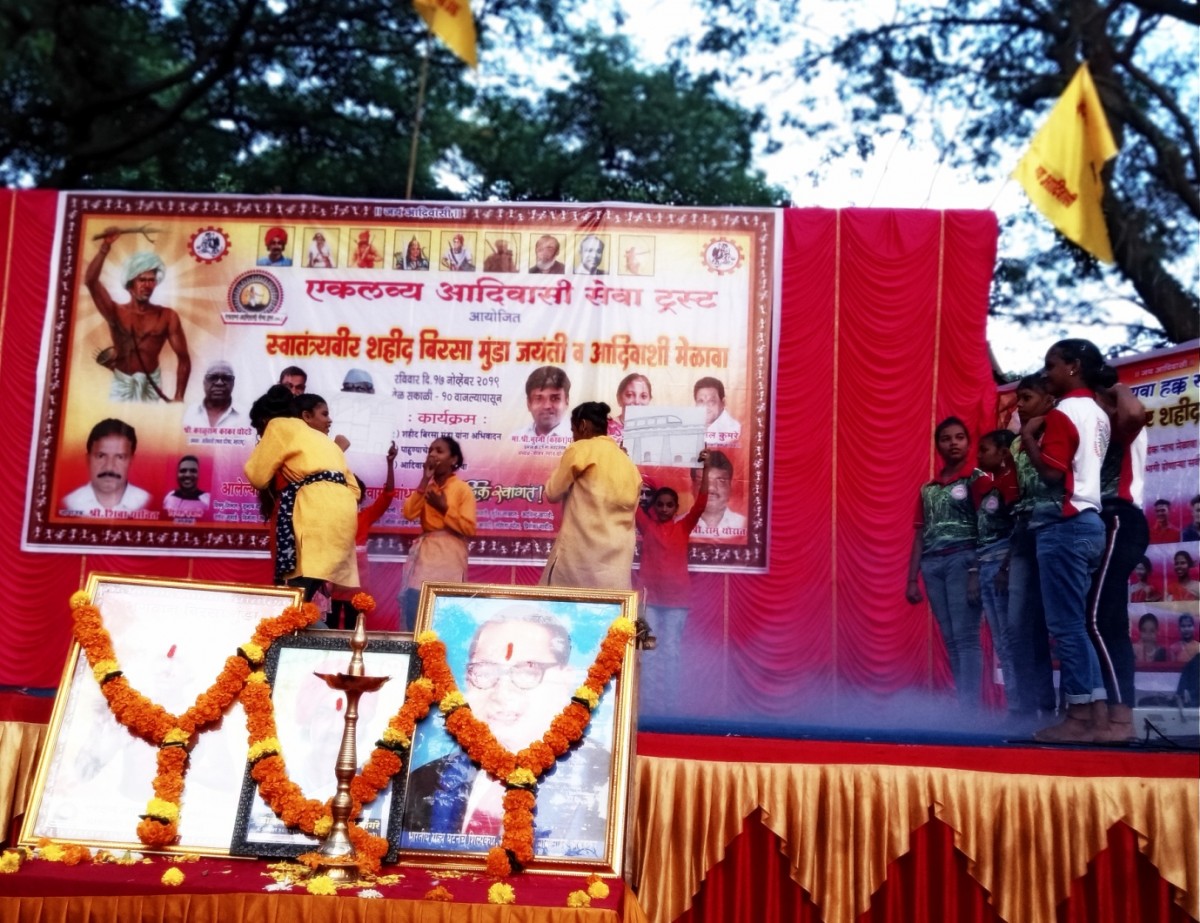
“There are several reasons why we organised Birsa Munda Jayanti in such a big manner this year. One was that, every year we remember our God, our Aaba, Birsa Munda on his anniversary,” said the firebrand leader and an ardent lover of forests, Prakash Bhoir. “It’s a day of celebration for us. But, this time we also wanted to reignite and reinvigorate our struggles to save Aarey,” he said
Bhoir believes that what happened in the aftermath of the midnight tree felling on October 5 and the arrests thereafter, was meant to instil fear in the minds of people, especially the youth who had joined the Save Aarey movement. “We had been weakened a bit, but we are going to face this determinedly. In the arrests that had followed the tree cutting, my wife was also arrested. So this was also a celebration of our resistance,” he said.
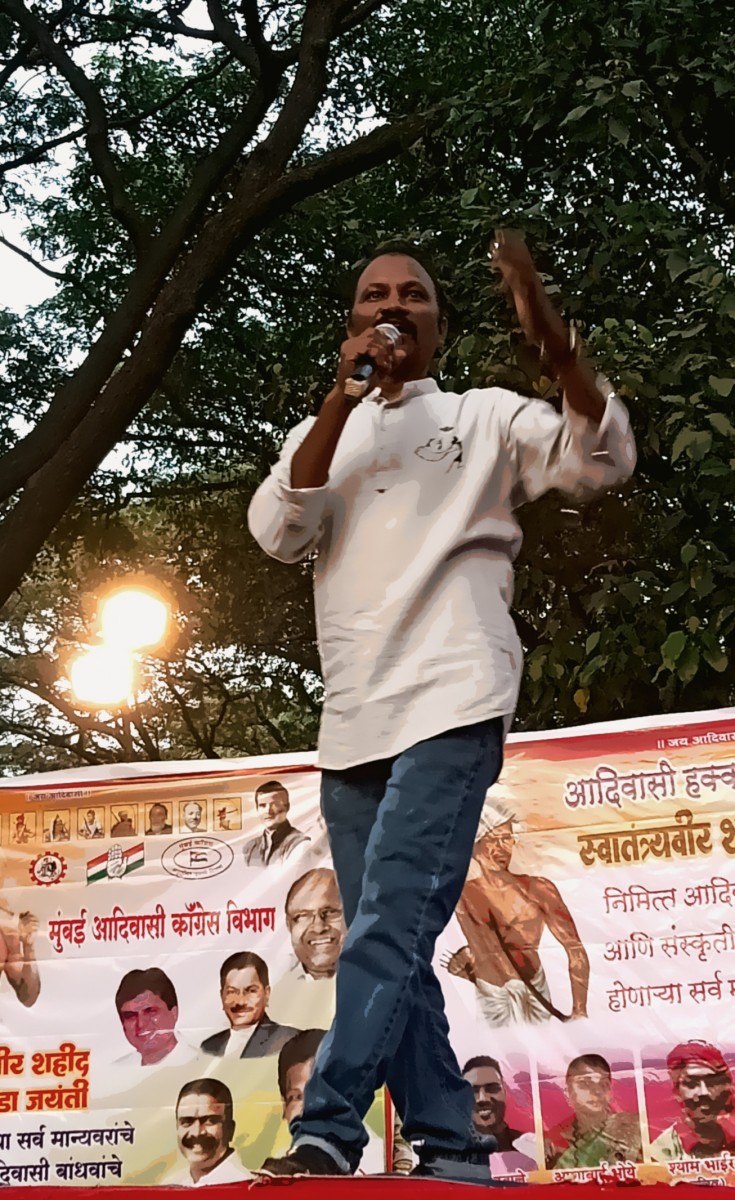
Merely six hours after the Bombay high court (HC) dismissed several petitions on Friday, October 4 opposing the construction of a Metro car-shed in the Aarey forest in Mumbai, the Brihanmumbai Municipal Corporation (BMC), the municipal body of Mumbai city, felled approximately 2,700 trees over the course of two days. Several protestors were detained, beaten up and 29 were arrested on serious charges under Section 353, Section 332, Section 143 and Section 149.
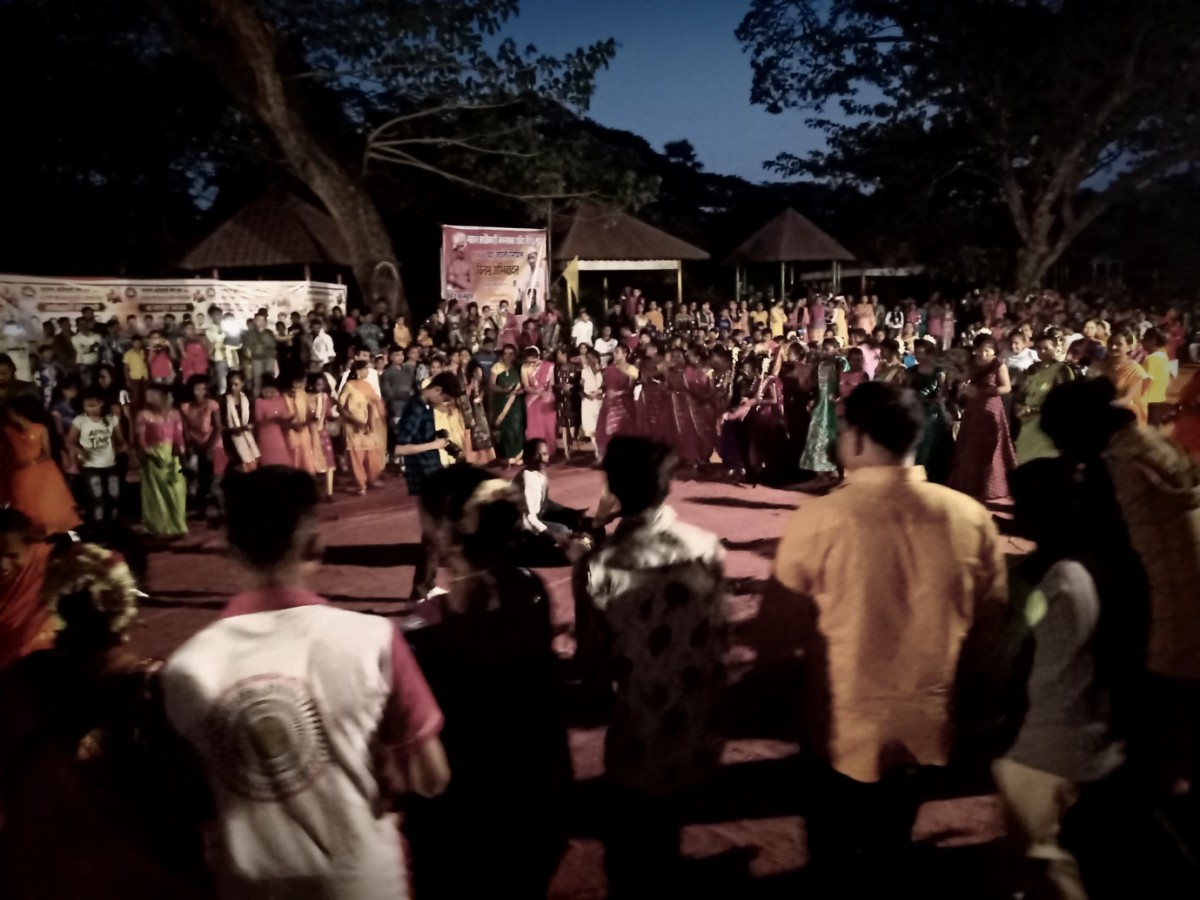
Adivasis from various parts of Mumbai and nearby areas like Virar, Palghar, Thane and Mumbai travelled long distances to reach Aarey to become a part of the celebrations. They were joined by the city’s youth, activists and environmentalists.
As the evening skies turned to shades of dark blue and violet, the trees echoed with several songs including one written by the prominent activist and poet of 1990s, Vilas Ghogre and performed by the cultural group Samta Kala Manch.
Also read: The State’s Violent Response to Tribal Discontent Is Fuelling the Pathalgadi Movement
The song called ‘Jangal Cha Raja’ tells Adivasis that, “you stay near the mountains, you are the king of jungle. You work in the farm, you grow grains and still you are hungry. Your generations have lived in jungle and you only are restricted to cut the woods. You’re indebted to money lenders. This is the time to resist!”

The scale of the programme was massive, with food arrangements made for anybody who came. “We felicitated and honoured those who went to jail [while opposing the tree cutting, and thus protecting the environment] so that there is no element of fear in the youth who have taken up this cause very strongly. This celebration was a statement that we took the arrests as a badge of honour.”
The Warli Adivasis in Aarey, their faces shining with the orange of the setting sun, are not going to concede easily and with their traditional dances of Tarpa and Gauri, the movement to assert their identity has taken on a renewed course.
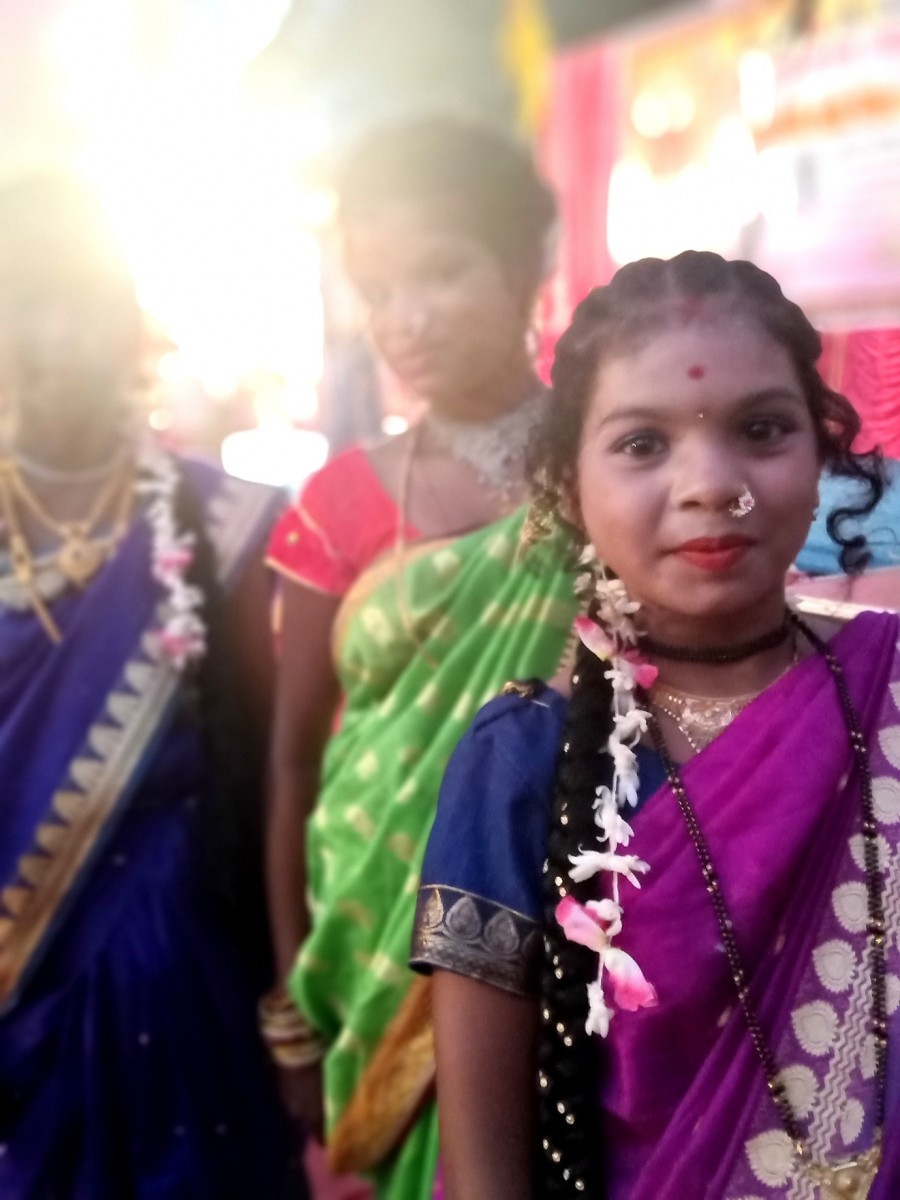
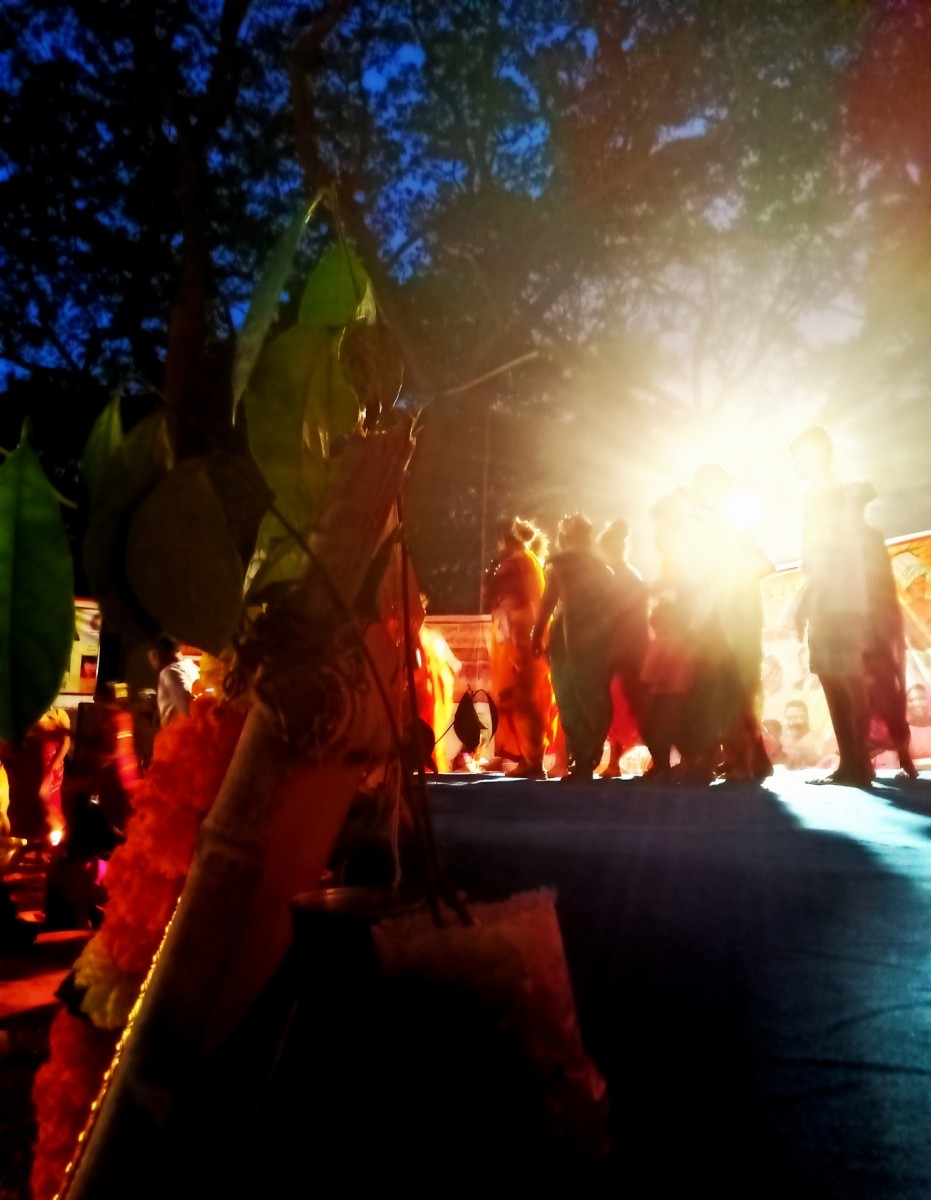
Bhoir recalls that once a point in the jungle had been located, which the Adivasis named the Birsa Munda Point. “Unfortunately, all the tree felling took place around that area. This is a very unfortunate and disturbing matter for us. While Birsa Munda fought the British, we have to fight our own people,” he adds.
Also read: Indian Cities Have Been Reduced to Just Real Estate
“We are worried that in just a matter of a few decades, Mumbai will be submerged. Even though we will not be there, we want to protect the future of our children,” said Bhoir and added that the story of development was not specific to Aarey and was happening across the world. “People save their income for their children, they maintain bank balance for them. What about an ‘earth-balance’? Who will ensure that?” asked Bhoir.
All photos by Sushmita.
Sushmita is a researcher and writer with the International Institute of Social Studies (IIST), Erasmus University, Rotterdam. Her research interests include forest rights, agrarian rights and gender-based violence and she tweets at @sushmitav1.

